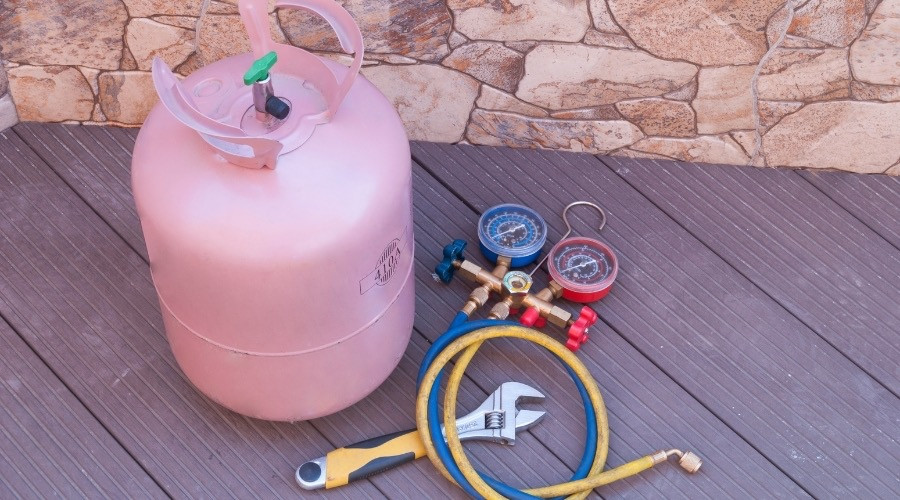Refrigerant and Signs of Refrigerant Issues Explained
Refrigerant is an essential component of air conditioning systems. However, when refrigerant levels are too high due to overcharging or too low due to a refrigerant leak, several issues can occur. This post will discuss what refrigerant does, the signs of refrigerant problems, and how to help prevent these issues.
What Does Refrigerant Do?
Refrigerant serves as the lifeblood of an air conditioning system, continuously circulating through a closed loop to absorb and release heat. This specialized chemical compound undergoes phase changes between liquid and gas states, making it incredibly efficient at transferring thermal energy from inside the home to the outside environment. Its ability to change states at relatively low temperatures allows the system to move substantial amounts of heat with minimal energy input.
Understanding this heat transfer process reveals why refrigerant is so crucial to an AC unit’s operation. The substance begins its journey at the evaporator coil, where it absorbs heat from warm indoor air and transforms from liquid to gas. This gas then travels to the outdoor condenser unit, where it releases the captured heat outside and condenses back into liquid form. The cycle repeats continuously during operation.
Signs of a Refrigerant Leak or Overcharged Refrigerant
 The air conditioning system can show warning signals when there is an issue with refrigerant levels. Signs of a refrigerant leak often mirror those of an overcharged system, making it crucial for homeowners to call a professional for proper diagnosis. Both refrigerant issues can cause discomfort and inefficiency.
The air conditioning system can show warning signals when there is an issue with refrigerant levels. Signs of a refrigerant leak often mirror those of an overcharged system, making it crucial for homeowners to call a professional for proper diagnosis. Both refrigerant issues can cause discomfort and inefficiency.
Signs that can indicate a refrigerant leak include warm air flowing from the vents or issues with properly cooling the home, a frozen evaporator coil, higher electric bills, hissing sounds, and more. However, some of these same symptoms, such as warm air from the vents or improper cooling and high energy bills, may also indicate overcharged refrigerant rather than a leak.
Whether dealing with refrigerant leaks or overcharging, both issues strain the system's components, leading to premature wear and tear and decreased energy efficiency, which in turn raises cooling costs. Professional diagnosis becomes essential, as homeowners cannot safely determine refrigerant levels without specialized equipment and training.
How to Avoid Refrigerant Problems
 The easiest way to help prevent overcharged refrigerant is by only hiring professionals to service the air conditioner and refrigerant, as DIY refrigerant refills are often the cause of overcharging. Professional refrigerant leak repair services help ensure the air conditioner receives the correct refrigerant levels after a leak, thereby maintaining optimal cooling performance.
The easiest way to help prevent overcharged refrigerant is by only hiring professionals to service the air conditioner and refrigerant, as DIY refrigerant refills are often the cause of overcharging. Professional refrigerant leak repair services help ensure the air conditioner receives the correct refrigerant levels after a leak, thereby maintaining optimal cooling performance.
An effective way to help prevent refrigerant leaks is with regular air conditioner maintenance by qualified professionals. During routine maintenance, technicians thoroughly clean the evaporator and condenser coils, removing dirt buildup that can lead to holes in the coils, which cause refrigerant leaks. They will also check refrigerant levels during maintenance visits to detect issues, such as refrigerant levels that are too high or too low, before they become more serious problems.
About Walker Plumbing, Heating & Air
Walker Plumbing, Heating & Air has more than 20 years of experience serving the St. George community. They provide straightforward pricing, same-day service, and no upselling. Call them for refrigerant leak services in St. George, UT.




